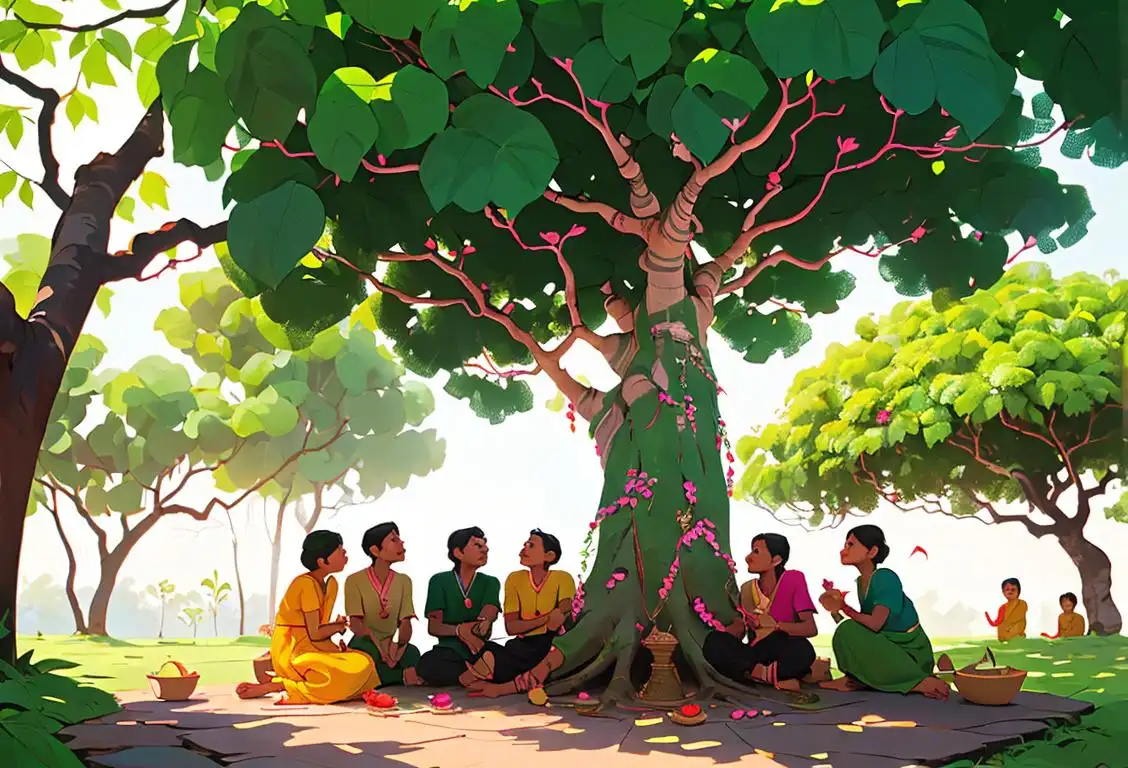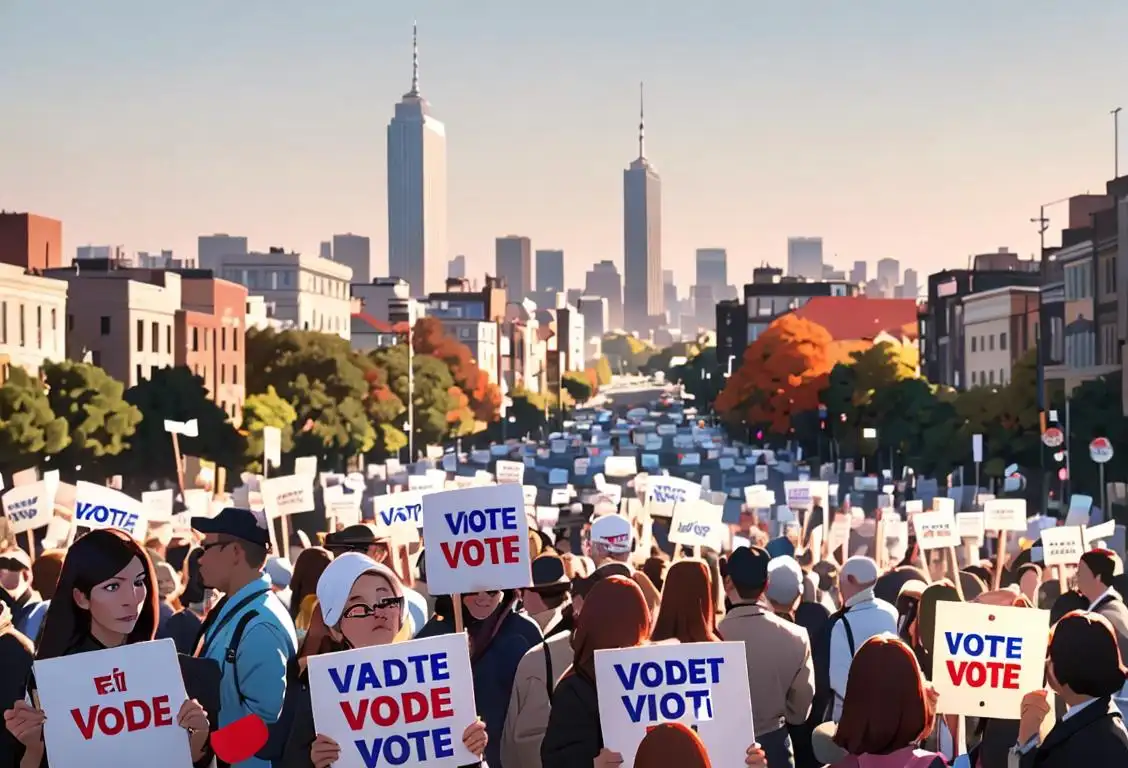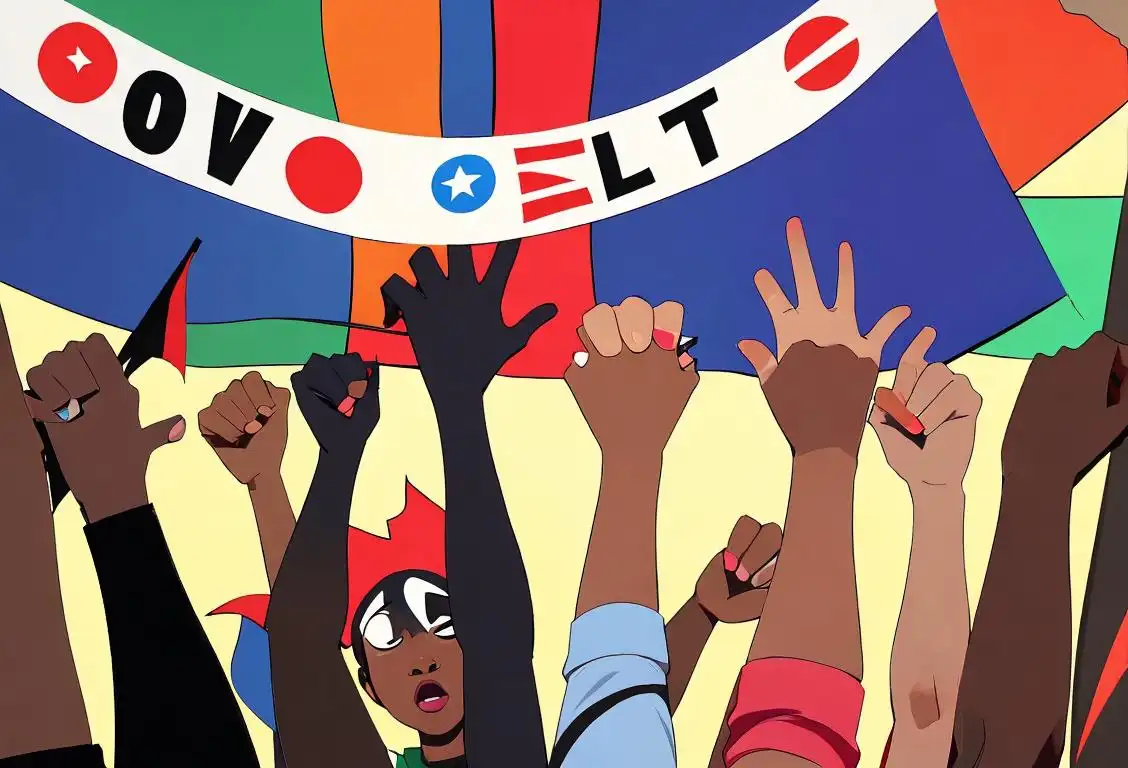National Panchayati Raj Day

Ever wonder how a village thousands of miles away in India gets its work done? Who's the go-to person for your mundane village disputes or the locals' festivity arrangements? Well, it's none other than the village council, weirdly called Panchayati Raj. This cumbersome name actually summarizes an efficient self-governing system that runs many villages in India. We celebrate this fascinating institution on National Panchayati Raj Day. So grab a cup of your favorite hot beverage, settle in, and allow us to shine a spotlight on this unique day!
When is Panchayati Raj Day?
It's national panchayati raj day on the 24th April.
What is Panchayati Raj?
Before diving into the celebration, let's find out what Panchayati Raj even is. The term 'Panchayati Raj' might sound alien for some, but it basically refers to a system of governance in which gram panchayats (village councils) are the basic units of administration. It's a real-life, functioning example of 'local solutions for local problems'.
National Panchayati Raj Day - The Story Behind
The story behind National Panchayati Raj Day is about as interesting as the system itself. Starting first in 2010, India officially observes this day on April 24th every year to recognize the achievements of the Panchayati Raj system - a lesser-known but essential part of India's democracy. It's a big deal over there!
How is it Celebrated?
Glamour and cookies aside, this day is, ironically, not a fancy tumble of celebrations, instead, it serves as a platform to discuss and enhance the system's functionality for better results. This is a day when officials and villagers come together rather unceremoniously to engage in constructive dialogue and work on development plans for the year ahead.
Internet and National Panchayati Raj Day
Though it may not have the global recognition of Christmas or New Year's Eve, National Panchayati Raj Day has a pretty significant online presence. A clickety-clack at the keyboard and voila! Over 19,938 mentions pop up, with the highest number of mentions on April 24, 2018.
The Power of Panchayati Raj
This system not only helps govern remote parts of the country, but it also provides a platform for local people to have their say in what's going on in their neighborhood. It's democracy at the grassroots level, my friends. So much capital 'D' Democracy at work!
History behind the term 'Panchayati Raj'
1959
The Birth of Panchayati Raj
In 1959, the term 'panchayati raj' was coined in India with the aim of establishing a system of local self-governance. It derives from the Hindi words 'panchayat', meaning 'council of five', and 'raj', meaning 'rule' or 'governance'. The idea behind the term was to empower rural communities by granting them the authority to make decisions on local issues related to development, administration, and justice. This marked the beginning of a new era in grassroots democracy and decentralization.
1973
Constitutional Recognition and Implementation
In 1973, the term 'panchayati raj' was officially recognized and added to the Indian Constitution through the 73rd Amendment Act. This amendment provided a constitutional framework for the establishment and functioning of Panchayati Raj Institutions (PRIs) across the country. It mandated the formation of three levels of PRIs – Gram Panchayat at the village level, Panchayat Samiti at the block level, and Zilla Parishad at the district level. This step aimed to further empower rural communities and ensure their participation in decision-making processes.
1992
Devolution of Power and Resources
In 1992, the Panchayati Raj system underwent significant reforms with the aim of decentralizing power and resources. The 73rd Amendment Act was amended to promote greater autonomy and financial independence for PRIs. This step aimed to ensure that PRIs have control over local planning and development, as well as the ability to levy and collect taxes. The devolution of power and resources to PRIs aimed to strengthen local democracy and bridge the gap between rural communities and the government.
2014
Enhancing Participation and Accountability
In 2014, the government of India launched a new initiative to enhance the participation and accountability of PRIs. This involved the implementation of e-governance systems, capacity building programs, and the introduction of social audit mechanisms. These reforms aimed to improve transparency, efficiency, and the delivery of services at the grassroots level. The digitalization of PRIs also aimed to increase citizen participation and enable easier access to information and government services.
Did you know?
Did you know that the Panchayati Raj system in India is made up of over 265,000 gram panchayats? That's a whole lot of local governing!Tagged
democracy India governance Panchayati Raj village council National Panchayati Raj DayFirst identified
24th April 2015Most mentioned on
24th April 2018Total mentions
19938Other days
Panchayati Raj Day
Register To Vote Day
Convention Day
Primary Day
Early Vote Day
Voting Day
Democracy Day
Voters Day
Black Voter Day
Guard Activated For Election Day








